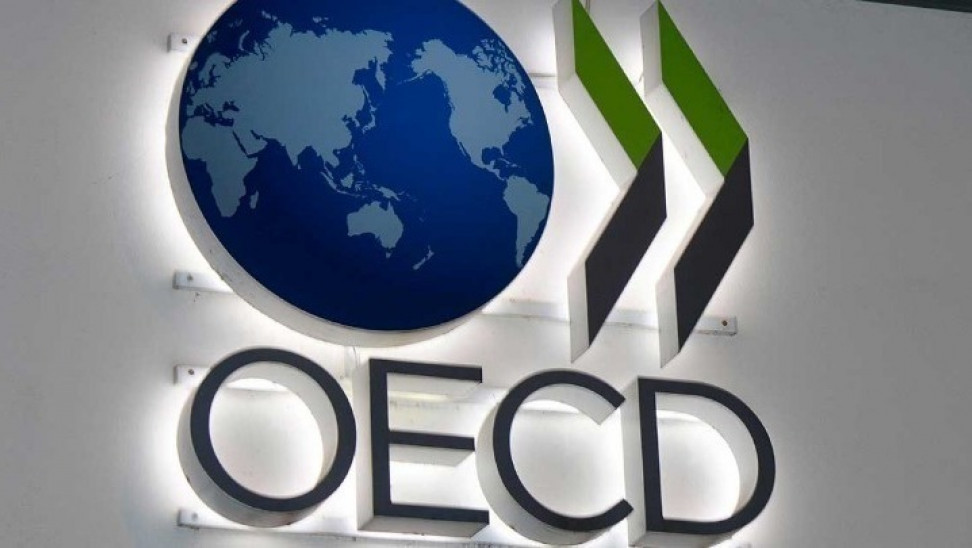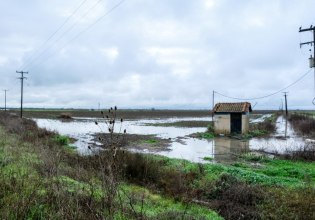OECD: Growth remains strong for Greece – At 2.2% of GDP
What the spring report of the OECD predicts for Greece
Strong growth with real GDP growing by 2.2% in 2023 and 1.9% in 2024 is predicted for Greece by the OECD in its spring report on the outlook for the global economy.
Consumption growth is forecast to slow in the short term after high inflation erodes household purchasing power.
Real investment growth is forecast to remain strong in the face of rising borrowing costs as spending increases related to Recovery and Resilience Funds.
Inflation moderates from September 2022 but is more broadly diffused as ongoing labor shortages help to push up wages.
Energy price subsidies are gradually reduced as energy prices fall.
Achieving and maintaining the planned return to primary surplus will help Greece manage inflationary pressures and reach investment grade.
Further increasing participation in the labor market, especially among women and young people, will improve equality at work and help address labor force shortages.
More specifically, the OECD finds that the Greek economy continued to grow dynamically despite the headwinds.
Investment growth remained strong in Q4 2022 despite rising investment costs and growing labor shortages.
Business confidence rose from October 2022 to near pre-pandemic highs in April, while the April PMI showed an increase in demand.
Real consumption continued to rise in Q4 2022 and early 2023, reflecting strong employment growth and despite falling household purchasing power and low consumer confidence.
However, job creation slowed in 2023.
Harmonized inflation eased to 4.5% in April as energy prices eased, while widening price pressures lifted core inflation to 6.1%.
In April 2023 the minimum wage rose by 9.4%, following increases of around 10% in the first half of 2022.
Electricity, gas and household heating prices fell by 27.9% from their peak in September 2022 to April 2023.
To deal with possible energy disruptions next winter, Greece has continued to increase storage capacity through agreements with neighboring countries, for example Bulgaria, and is expanding the capacity to import liquefied natural gas.
Government bond spreads narrow: spreads on German 10-year government bonds narrowed by almost 130 basis points at the end of May 2023 from their peak in October 2022.
The rising cost of borrowing
Subsidies on electricity bills protect households and businesses from high energy prices.
Subsidies introduced to tackle the energy price spike are being reduced as energy prices fall and are planned to be phased out by the second half of 2023, limiting their fiscal cost for 2023 to 0.5% of GDP.
In April 2023, pensioners received one-off payments of 0.4% of GDP linked to cost of living increases. Other fiscal measures in 2023 amount to 1.8% of GDP, including for example a fiscal subsidy for mortgage interest costs.
The government aims to turn the primary fiscal balance into a surplus close to 1% of GDP in 2023 and close to 2% of GDP in 2024.
Tighter monetary policy in the euro area has increased borrowing costs. For the private sector, in January 2023 interest rates reached their highest level since October 2016. However, new lending to the private sector continued to increase as banks expanded lending capacity by liquidating non-performing loans and through the appropriations from the recovery plan.
Growth remains strong
Slowing employment and pressure on real wages are expected to limit private consumption growth, and fiscal tightening will also reduce aggregate demand, the OECD notes, estimating that real investment growth will remain strong, reflecting higher borrowing costs and the increase in spending related to the Greece 2.0 Plan, which includes public investment projects worth almost 1.0% of GDP in 2023, rising to 1.7% of GDP in 2024 and direct investment at 0.8% of GDP per year.
Inflation is forecast to moderate in 2023 as energy price cuts wear off, but will remain high reflecting continued increases in input costs, wage growth and capacity constraints.
Fiscal consolidation is crucial
The OECD highlights that achieving fiscal consolidation is expected to be critical to achieving investment grade.
Stability will be challenged, for example, by a further rise in energy prices or other prices dependent on international factors, which will trigger additional fiscal support.
The risk of rising interest rates leading to a generation of red mortgages is mitigated by Greek banks agreeing to freeze floating rates until April 2024 and by the relatively high share of recent mortgages issued at fixed rates.
Also, using windfalls or reducing spending to limit public debt rather than increasing trade would help limit inflationary pressure and achieve an investment-grade public debt rating.
This will offset rising borrowing costs and support Greece’s need to increase investment in the long term.
Growth could also be made more sustainable by strengthening the public sector’s capacity to deliver investments, including Recovery Fund priorities for renewables expansion and renovations that improve the energy efficiency of buildings.
Finally, the OECD points out that promoting the adoption of the new paid paternity leave in Greece, flexible work arrangements and the expansion of childcare facilities could improve female and youth participation rates, expanding opportunities and helping the economy manage its aging population.
- Σάλος με AI εικόνες που ανέβασε ο Τραμπ – Δείχνουν τη Γροιλανδία (και όχι μόνο) αμερικανική και θεατές τους Ευρωπαίους
- «Παιχνίδια» παγκόσμιας εξουσίας – Ο αποδυναμωμένος ΟΗΕ, η διεθνής αταξία και μια κομβική διαδοχή
- Έκτακτο δελτίο για την κακοκαιρία: Συναγερμός για επικίνδυνα φαινόμενα με καταιγίδες και χιονοπτώσεις
- Σκύλος: Από τι εξαρτάται η χρονική διάρκεια εκπαίδευσής του;
- Φάμελλος: Απαράδεκτη και σκοταδιστική η δήλωση Καρυστιανού – Μόνο στην τραμπική ιδεολογία παρόμοιες τοποθετήσεις
- Στην εξέδρα εκτόξευσης ο υπερπύραυλος της NASA για τον ιστορικό γύρο της Σελήνης
- Φωτιά σε θάλαμο ανηλίκων στις φυλακές Κασσαβέτειας – Έρευνες για κρούσματα φυματίωσης
- Καραχάλιος: Η Καρυστιανού ετοιμάζει ένα υπερδεξιό μόρφωμα
Ακολουθήστε το in.gr στο Google News και μάθετε πρώτοι όλες τις ειδήσεις








![Άκρως Ζωδιακό: Τα Do’s και Don’ts στα ζώδια σήμερα [Τρίτη 20.01.2026]](https://www.in.gr/wp-content/uploads/2026/01/danie-franco-wEuWV0Vz9uw-unsplash-315x220.jpg)














































































 Αριθμός Πιστοποίησης Μ.Η.Τ.232442
Αριθμός Πιστοποίησης Μ.Η.Τ.232442